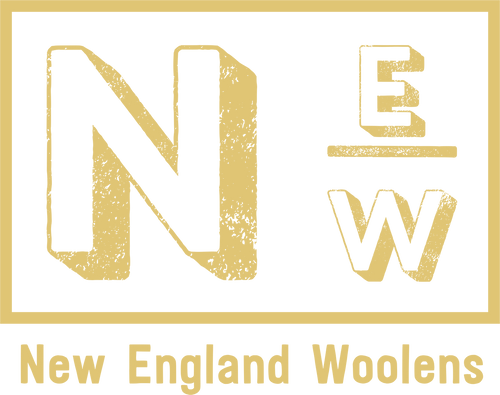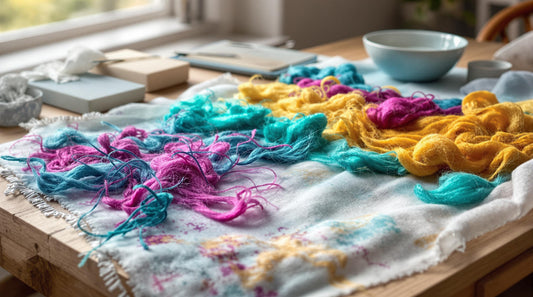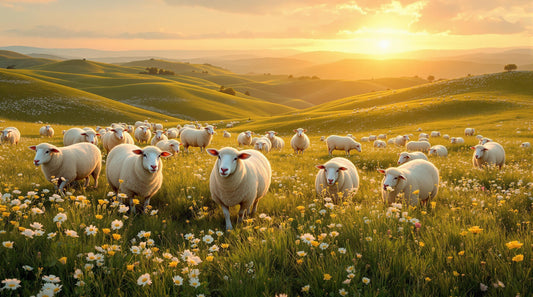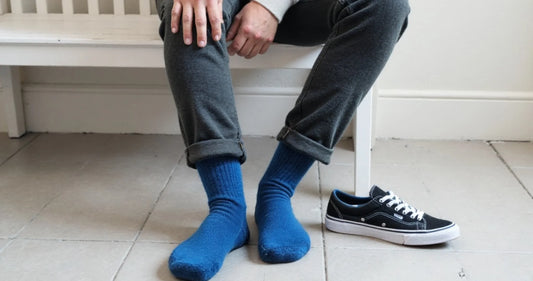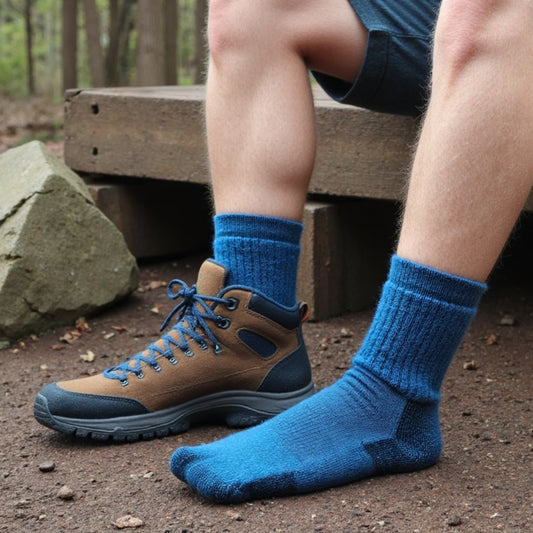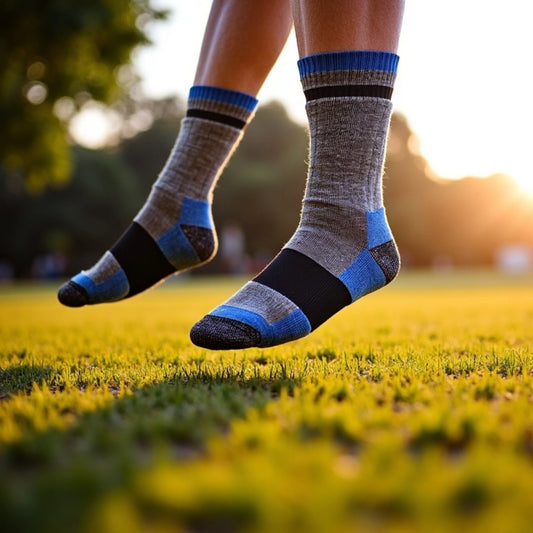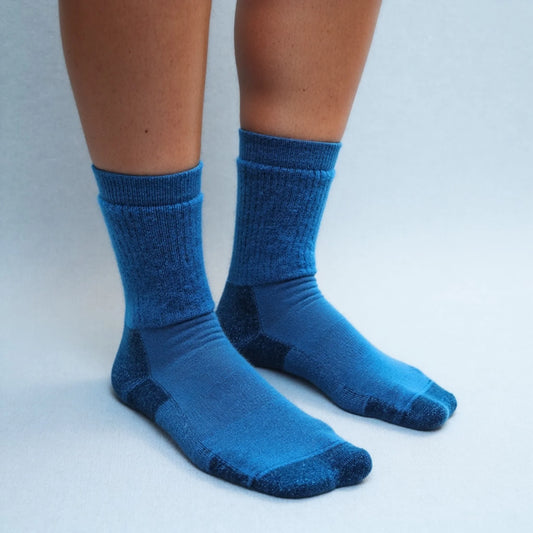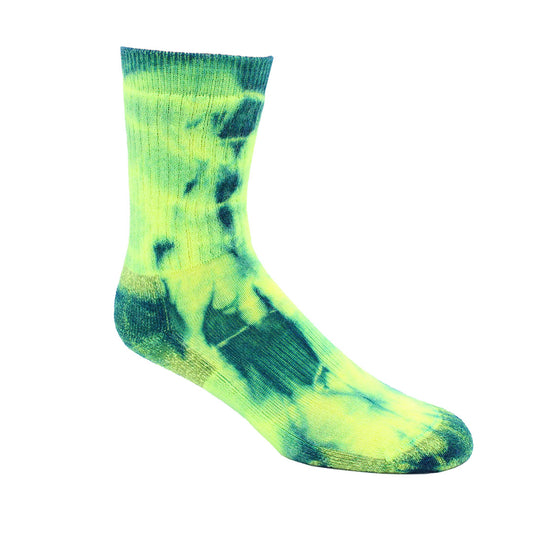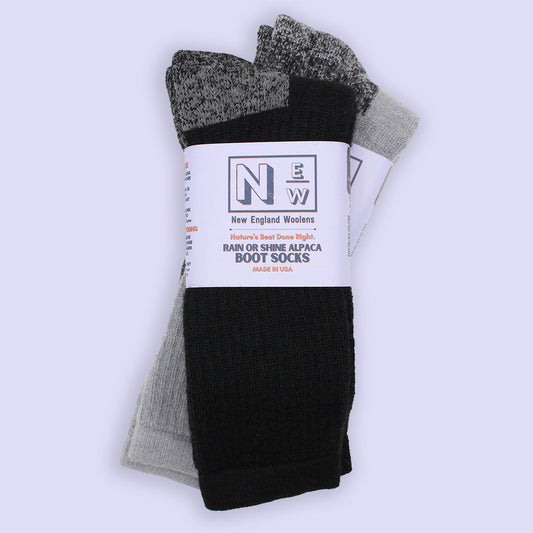Fair trade fashion ensures ethical practices in clothing production. Here's what you need to know:
- Guarantees fair wages and safe working conditions
- Bans child labor
- Promotes environmental sustainability
- Supports local communities
Key points:
- Look for certifications like Fairtrade Mark, Fair Trade USA, and WFTO Label
- Fair trade clothes may cost more but often last longer
- Natural fibers like organic cotton, wool, and hemp are common in fair trade fashion
- Brands should be transparent about their practices
Why it matters:
- Workers earn living wages
- Communities benefit from development funds
- Production is more eco-friendly
- You get better quality clothes
Related video from YouTube
What Makes Fashion Fair Trade
Fair trade fashion isn't just a trendy label. It's about ethical practices that help workers, communities, and the environment. Let's break down what makes clothing "fair trade" and why it matters.
Fair Trade Labels Explained
Fair trade labels are your guide to ethical fashion. But what do they really mean?
Fairtrade Certification is the gold standard. It's controlled by FLO-CERT international and guarantees:
- Fair prices for workers and farmers
- Good working conditions
- Responsible production
The Fairtrade Premium is where it gets interesting. Certified brands pay extra on top of the fair price. This money goes straight to producers' cooperatives for community projects. Workers and farmers choose how to use it.
"Fair trade is about trading with mutual respect." - Kalani, a Fairtrade Cotton certified brand
Kalani doesn't just talk the talk. They pay 13.5% above the Fairtrade Premium to their cotton cooperative. The result? Farmers invest in education, health, and environmental projects.
Main Rules and Standards
Fair trade isn't a vague idea. It's built on solid standards:
- Fair Wages: Workers must get enough to cover sustainable production costs.
- Safe Working Conditions: No sweatshops allowed.
- No Child Labor: This rule applies to the whole supply chain.
- Environmental Protection: Think water conservation and organic farming.
- Transparency: Fair trade businesses must be open about what they do.
These aren't just nice-to-haves. They're checked and enforced. That's what sets real fair trade apart from empty marketing claims.
Fair Trade vs. Fairtrade: What's Different
Confused by "fair trade" and "Fairtrade"? You're not alone. Here's the deal:
Fair Trade:
- A general movement for ethical production
- Not a protected term in the US
- Any company can use it based on their own definition
Fairtrade:
- A specific certification system
- One word, capitalized
- Given by organizations following strict rules
"Both fair trade (the concept) and Fairtrade (the certification) strive for more justice in international trade." - Utopia
The key point? While both aim for ethical practices, Fairtrade certification gives you more guarantees.
Here's a tip: When you see "fairly traded" without certification, ask questions. Look into the supply chain. Check how they monitor things. Without proof, it's just words.
Fair trade fashion isn't just about looking good - it's about doing good. Now you know what these labels and standards mean. You can make choices that really make a difference. Remember, every time you buy something, you're voting for the kind of world you want to live in.
How to Spot Fair Trade Clothes
Identifying genuine fair trade clothing isn't always easy. With "greenwashing" on the rise, you need to know what to look for. Here's how to become a smart fair trade shopper.
Common Fair Trade Symbols
The key? Recognizing legit certifications. Here are the top labels to watch for:
- Fairtrade Mark: The gold standard. Used in 120+ countries on 27,000+ products. It's a sure sign of high social, economic, and environmental standards.
- Fair Trade USA: A reliable indicator in the US market. They've certified over 800 manufacturers and distributors.
- World Fair Trade Organization (WFTO) Label: Shows a company follows the 10 Fair Trade Principles, from fair wages to eco-practices.
- Fair Wear Foundation (FWF) Label: Not strictly fair trade, but shows commitment to better supply chain conditions.
"The point of all the fair trade labels and logos is to help the consumer decide which products to buy, yet there is a fair amount of confusion." - Fair Trade Winds
Keep in mind: The Fairtrade Mark on clothes often refers to the cotton used. The Fairtrade Cotton Mark ensures fair production and traceability of raw cotton throughout production.
Who Checks Fair Trade Claims
Independent bodies do the heavy lifting in verifying fair trade claims:
- FLOCERT: Independently audits Fairtrade standards compliance.
- Fair Trade USA: Developed their own standards and compliance criteria.
- World Fair Trade Organization: Rigorously assesses members' adherence to fair trade principles.
These organizations don't just take companies at their word. They conduct thorough audits, including surprise visits, to ensure compliance.
Spotting False Claims
Not all "ethical" claims are legit. Here's how to spot potential greenwashing:
- Vague Language: Watch out for terms like "eco-friendly" or "sustainable" without specifics.
- Lack of Transparency: Real fair trade brands are open about their practices. Secretive? Red flag.
- Selective Information: Some brands highlight one ethical aspect while ignoring others. Look for comprehensive practices.
- No Third-Party Certification: Without independent verification, ethical claims are just marketing talk.
Take H&M's "Conscious" collection, for example. In 2022, Norway's Consumer Authority called them out for misleading consumers about sustainability due to lack of precise info.
"As H&M are not giving the consumer precise information about why these clothes are labelled Conscious, we conclude that consumers are being given the impression that these products are more 'sustainable' than they actually are." - Bente Øverli, Deputy Director of Norway's Consumer Authority
To avoid falling for false claims:
- Check the brand's website for detailed info on ethical practices.
- Look for clear explanations of how they define and implement sustainability.
- Use online tools like Project Cece, Ethical Made Easy, or Fashion Revolution's Transparency Index to research brands.
- Don't hesitate to email brands directly with specific questions about their fair trade practices.
Why Choose Fair Trade Fashion
Fair trade fashion isn't just a passing fad. It's reshaping the industry and changing lives. Here's why your wardrobe choices matter more than you think.
Better Pay and Work Conditions
When you buy fair trade clothing, you're directly supporting workers' lives. The reality is shocking: a University of Nottingham study found 56% of UK garment workers were paid below minimum wage. And that's in a developed country.
Fair trade flips this script. It ensures fair wages and safe working conditions. In 2018, Fair Trade USA reported factory workers earned $4.4 million in Community Development Funds. That's real impact.
"There is no sustainable fashion without fair pay." - Fashion Revolution
It's not just about money. It's about dignity. Fair trade certified factories, like Connoisseur Fashions in India, focus on career growth for all employees. They pay workers even during lockdowns and have career roadmaps. It's a total shift in how the industry treats its backbone - the workers.
Help for Local Communities
Fair trade goes beyond the factory. It invests in entire communities. In 2018, 88,000 people could vote on how to spend Community Development Funds. This democratic approach puts money where it's needed most.
These funds often support:
- Building schools
- Improving healthcare access
- Providing emergency relief
During COVID-19, many fair trade committees used these funds for health equipment and emergency basic necessities.
Earth-Friendly Practices
Fair trade and environmental sustainability go hand in hand. Fair Trade USA helps farmers become "better stewards of the land" through strict environmental standards. This includes cutting harmful pesticides, using more renewable energy, and promoting biodiversity.
Take Oliberté, a fair trade footwear company. They source leather from Ethiopia to cut waste and run a zero-waste facility. It shows fashion can be both ethical and eco-friendly.
Better-Made Products
Fair trade isn't just good for workers and the planet - it's great for your wardrobe too. These products are often higher quality and last longer. Why? Fair wages allow for better craftsmanship and attention to detail.
Think about it: when workers aren't rushed or underpaid, they focus on quality. This means clothes that feel better and last longer. It's a shift from fast fashion's "wear and toss" to a "buy less, buy better" approach.
Choosing fair trade fashion is more than a purchase - it's a statement. It says you care about the people behind your clothes, our shared planet, and quality. As consumers, we can drive change. Every fair trade item in your closet votes for a fairer, more sustainable fashion industry.
sbb-itb-b77f5dc
Smart Shopping Guide
Let's talk about how to shop for fair trade fashion. It's not always easy, but with a few tips, you can make choices that are good for workers and the planet.
Where to Buy Fair Trade
You don't have to look far to find fair trade clothes these days. Here are some great places to start:
- Made Trade: An online shop with eco-friendly, artisan-made clothes. Prices? $30 to $150.
- Ten Thousand Villages: They've been in the fair trade game for a while. All their stuff comes from artisans who get fair pay and safe workplaces. Clothes cost between $5 and $225.
- Pact: They're all about organic cotton and Fair Trade certification. Prices range from $15 to $120 for everyday basics.
- People Tree: These folks were the first fashion company to get the World Fair Trade Organization (WFTO) label. Women's basics start at $10 and go up to $120.
What Labels Tell You
Labels can be confusing, but here's what you need to know:
- Fairtrade Mark: This is the big one. It means high standards for social, economic, and environmental practices.
- Fair Trade USA: If you're in the US, look for this. It's on over 800 brands.
- WFTO Label: This means a company follows 10 Fair Trade Principles, from fair wages to eco-friendly practices.
And hey, if you see a Fairtrade Cotton Mark, that's good news. It means the cotton was produced fairly from start to finish.
Understanding Prices
Fair trade clothes often cost more. Here's why:
- Workers get better pay.
- The materials are usually better quality and sustainable.
- Production is often smaller-scale and more ethical.
But think about it this way: A £90 ethical dress worn 30 times costs £3 per wear. A £15 fast fashion dress worn just 3 times? That's £5 per wear. In the long run, fair trade can be cheaper AND better for the world.
Natural Fiber Options
Natural fibers are a big deal in fair trade fashion. Here's what to look for:
- Organic Cotton: Brands like Pact and Kotn use the good stuff, certified by GOTS.
- Wool: Check out New England Woolens. Their ECO-TRAIL MERINO WOOL HIKER SOCKS ($18) are made with Merino wool and recycled nylon.
- Hemp: Super durable and eco-friendly. Brands like tentree use it.
- TENCEL: This comes from wood pulp. It's soft, breathable, and used by brands like tentree and Happy Earth Apparel.
When you're shopping, look for labels like GOTS or OEKO-TEX. They mean the materials meet strict environmental and social standards.
Checking Fair Trade Brands
Want to spot genuine fair trade fashion? Here's how to tell if brands really walk the talk.
Open Business Practices
Fair trade fashion is all about transparency. Brands should be upfront about how they make their stuff.
Here's the thing: In 2021, less than half of brands shared info about their main manufacturers. And only 11% mapped out their full supply chain. That's a problem. It can hide shady labor practices and environmental issues.
But some brands are nailing it. Take Another Tomorrow. They give you a "provenance journey" for every item. It's like a roadmap of how your clothes were made. Pretty cool, right?
Making Fair Trade Clothes
Real fair trade brands follow strict rules. They care about people AND the planet.
What to look for:
- Safe workplaces
- Fair pay
- No kids working
- Earth-friendly production
Eileen Fisher is crushing it. They track everything from farms to factories. They get organic cotton from New Mexico and wool from places like Australia and Argentina.
Material Sources and Workers
Fair trade fashion is about doing right by workers and the environment.
Check out Nudie, a Swedish jeans company. They use organic cotton from India, Turkey, and Uganda. Plus, they'll fix your jeans for free, forever. That's good for workers and the planet.
"You can't fix what you can't see. That's why supply chain transparency is so important for changing the fashion industry." - Becca Coughlan, Transparency Manager at Remake
Getting Certified
Certification is how brands prove they're not just talking the talk. Here's how it works:
1. Assessment: Brands get their supply chain checked out.
2. Compliance: They have to meet tough standards.
3. Regular checks: Certified brands get audited over and over to make sure they're still doing right.
Fair Trade USA has helped workers at over 1,300 brands earn an extra $500 million. Big names like Patagonia and Athleta have jumped on board, showing they're serious about doing good.
Conclusion
Fair trade fashion isn't just a passing fad. It's reshaping the clothing industry and improving lives worldwide. Your wardrobe choices? They have a big impact.
Here's why fair trade fashion matters:
Workers get a fair deal: Fair trade means safe work and living wages. In the UK, 56% of garment workers were paid below minimum wage. Fair trade flips this on its head.
Communities benefit: In 2018, 88,000 people decided how to spend Community Development Funds. This money went to schools, healthcare, and emergency relief.
It's eco-friendly: Take Oliberté. They run zero-waste facilities and source materials responsibly. Fair trade and sustainability go hand-in-hand.
Better quality clothes: Fair trade often means clothes that last longer. It's about buying less, but buying better.
The fair trade movement is taking off. From 2016 to 2021, online searches for sustainable goods jumped 71%. People are realizing their purchases pack a punch.
"Sustainability is not just a trend but a commitment to a better future." - Author Unknown
This quote nails it. Fair trade fashion isn't about following fads. It's about making real change.
When you shop, keep these tips in mind:
- Look for labels like Fairtrade, Fair Trade USA, and WFTO.
- Don't fall for vague claims. Real fair trade brands are open about what they do.
- Think about how long your clothes will last. Natural fibers are a good bet.
- Support brands that go above and beyond. Patagonia, for example, has given over $14 million in the past five years to fight climate change.
Your choices make a difference. Every fair trade purchase helps workers, protects the planet, and pushes fashion in a better direction. It's not just about looking good - it's about doing good.
As you pick out clothes, remember each piece tells a story. Make it a story of fairness and positive change. The power is in your closet.
FAQs
What is fair trade in fashion?
Fair trade in fashion is all about making clothes the right way. It's a set of rules that make sure everyone involved in making your clothes gets treated well and paid fairly.
Here's what fair trade fashion is all about:
It bans forced labor and child labor. No exceptions. Workers get safe places to work and fair treatment.
Fair trade also means workers earn enough to live on. They can cover their basic needs and take care of their families.
But it's not just about the people. Fair trade cares about the planet too. It pushes for production methods that are kinder to the environment.
Many fair trade programs go a step further. They invest in local communities, helping to fund schools, healthcare, and other important projects.
"The fair trade movement is a worldwide effort committed to sustainable development by supporting small producers, safe workplace surroundings, fair compensation, and a foothold in overseas markets." - Terra Thread
Fair trade isn't limited to clothes. It's about making a positive impact on people and the planet. When you buy fair trade fashion, you're voting for a better, more ethical industry with your wallet.
